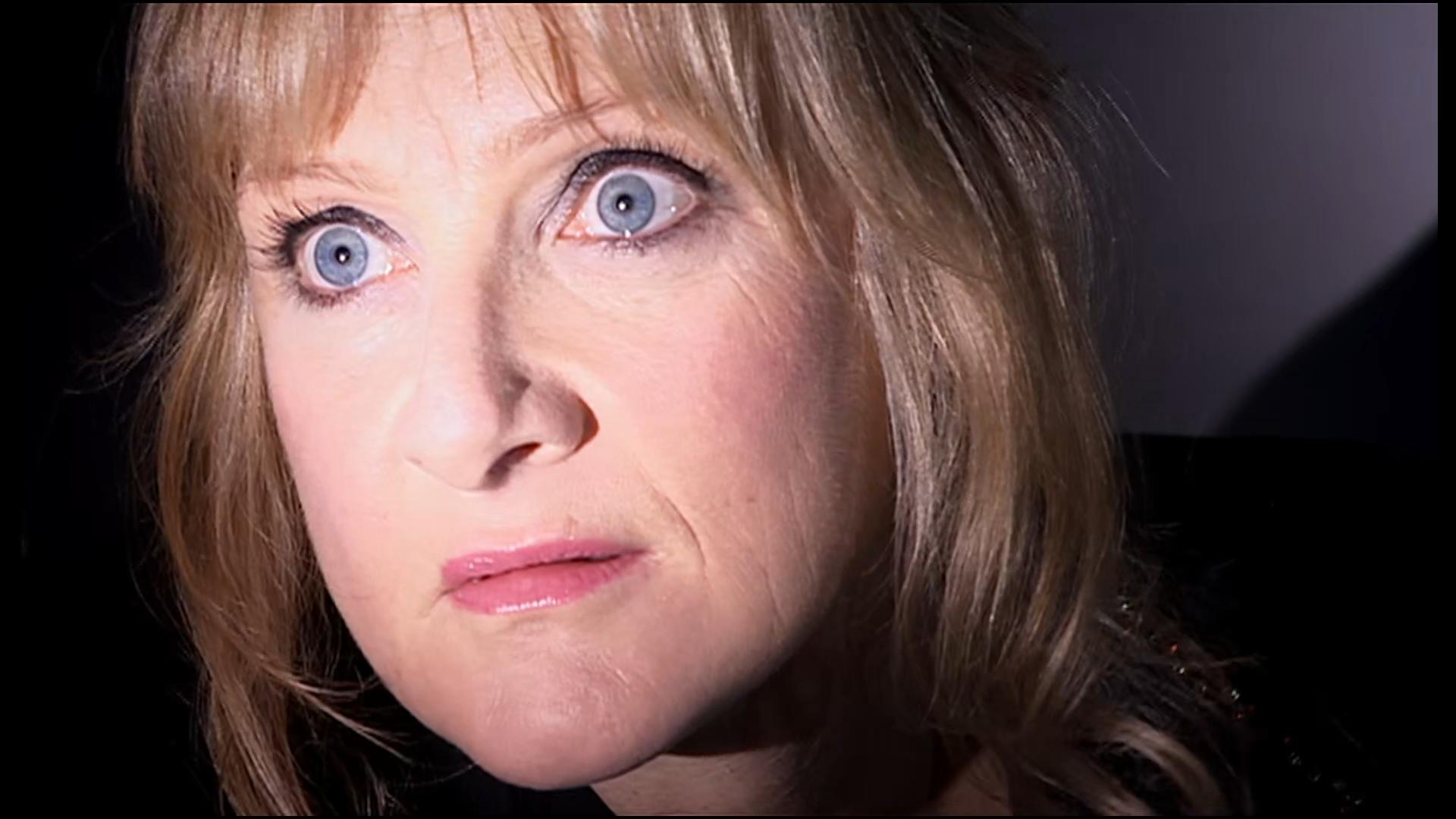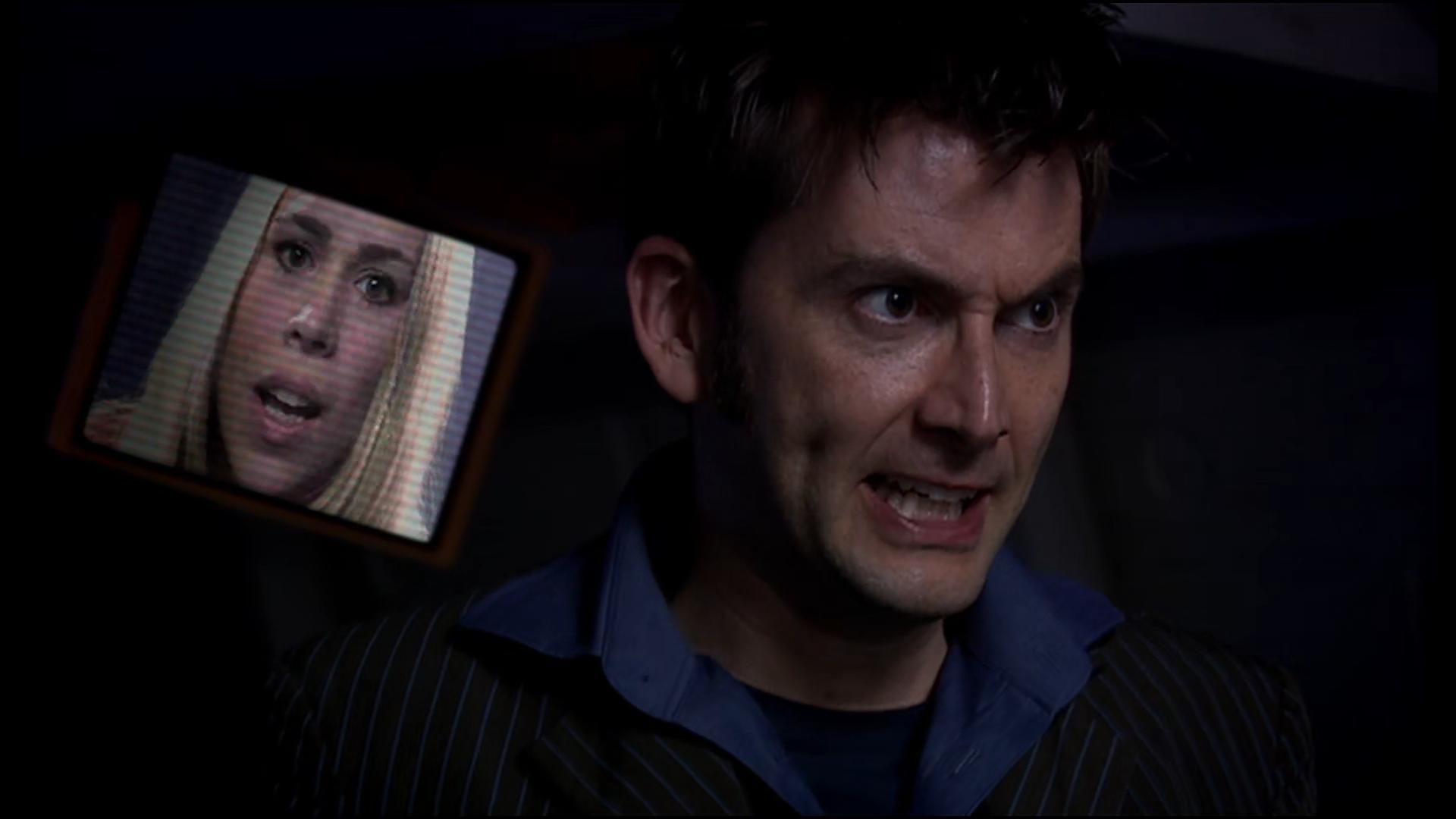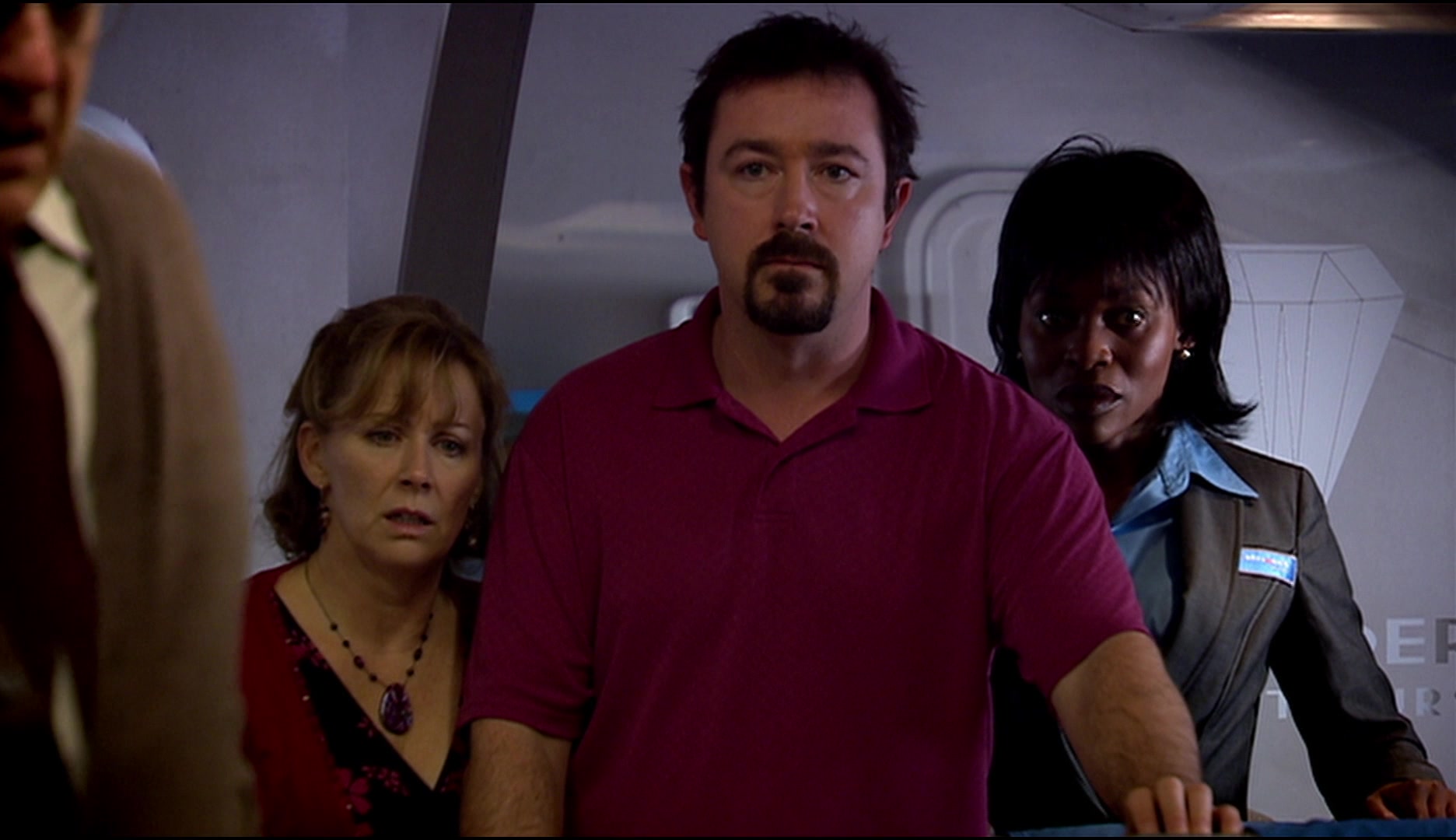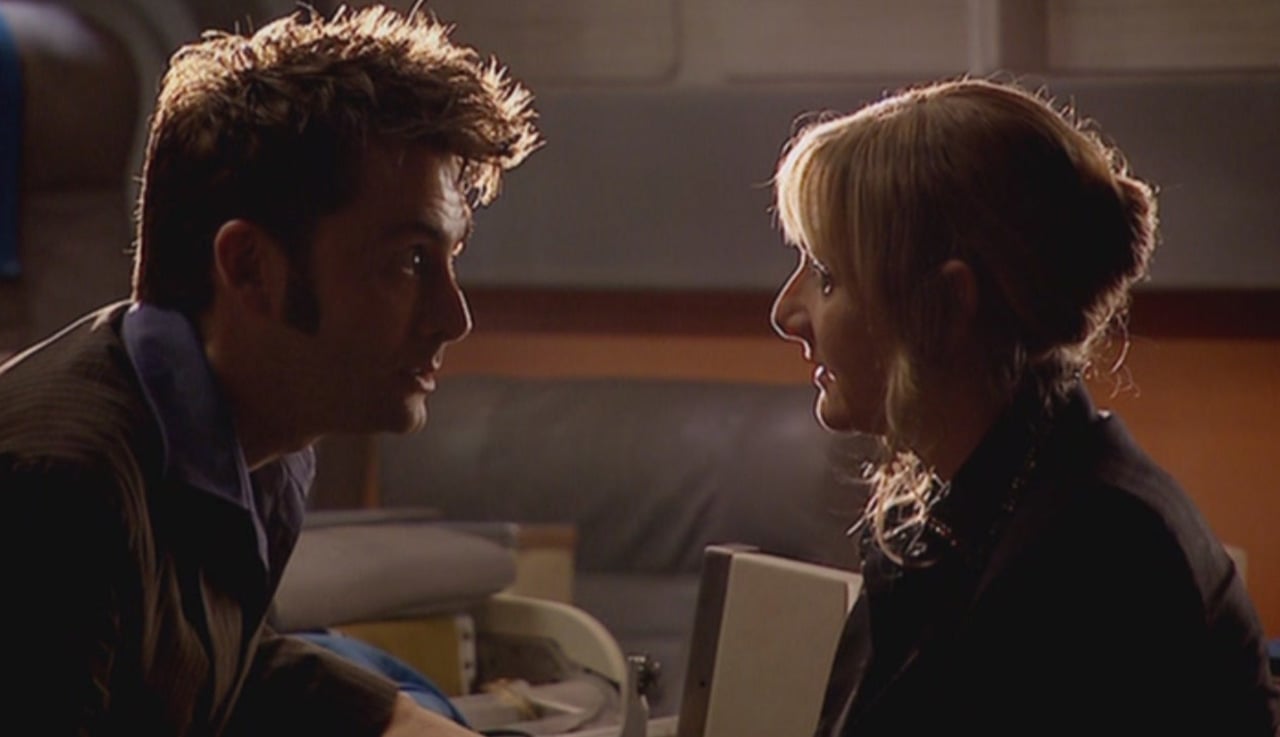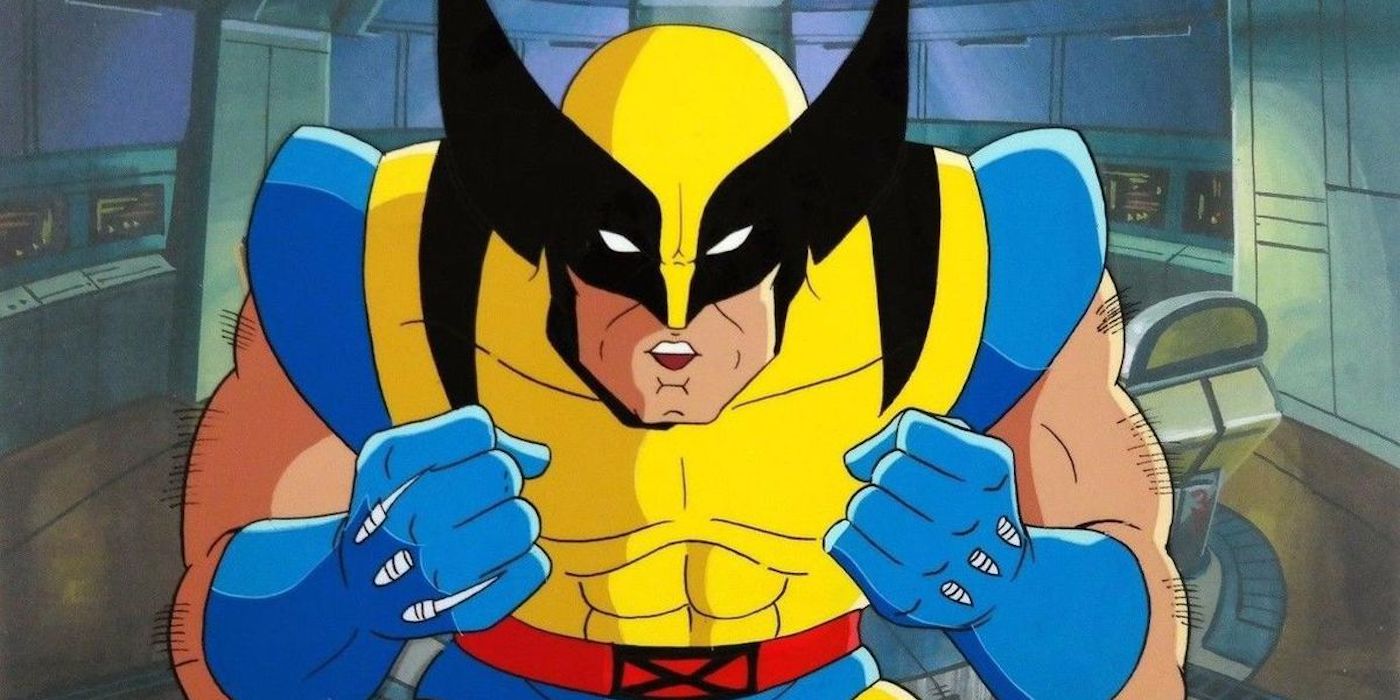‘Doctor Who’s “Midnight” is More Essential Than Ever 15 Years Later
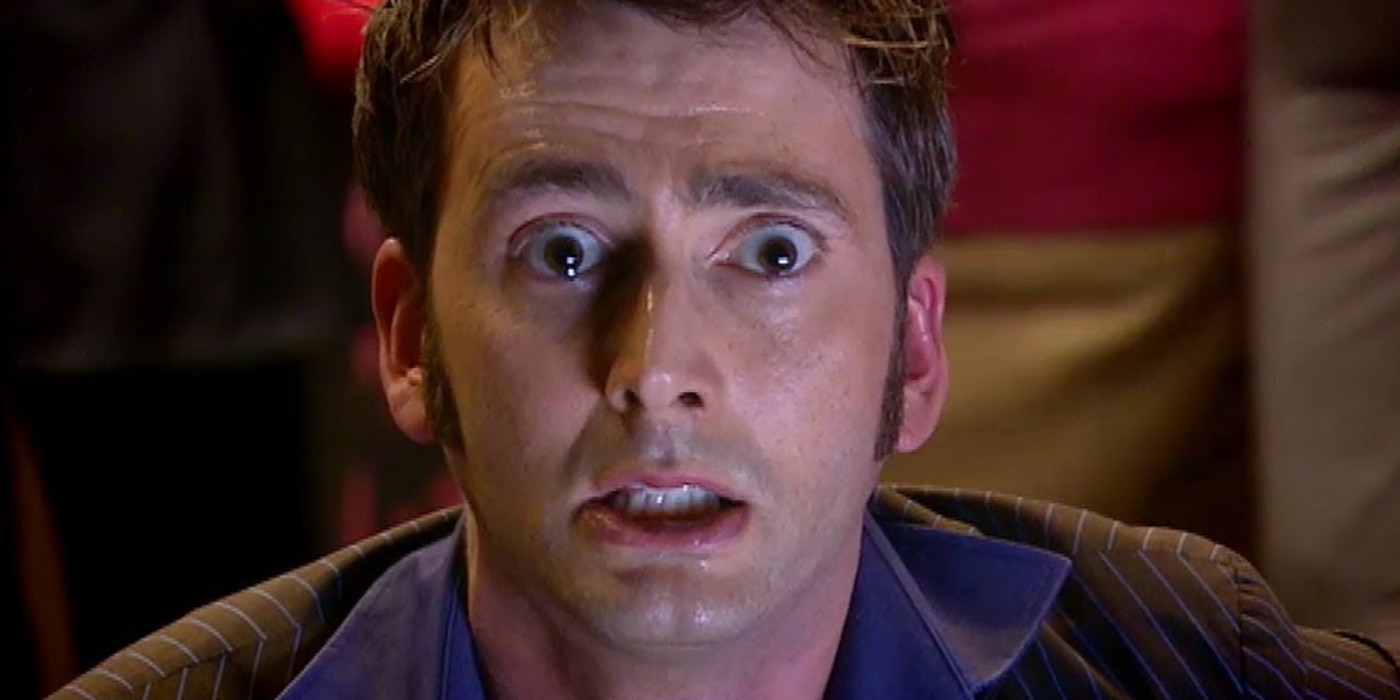
Doctor Who has some of the best episodes in TV history. One of its best is somehow both its most atypical and emblematic: “Midnight”.
Doctor Who. 2008. It’s the fourth season since the show’s relaunch. It’s David Tennant as the Doctor and Catherine Tate as Donna Noble. It also just so happens to be the last full series with showrunner Russell T Davies at the helm. And it’s glorious. So glorious and so popular in fact that, 15 years on, all three of those names are returning for the show’s historic 60th anniversary.
There are a lot of reasons that season is so well loved. Tennant and Tate’s comedic chemistry is off the charts. The bombastic season arc sees the return of Dalek creator Davros. It’s the pull-out-every-stop season where literally every past companion of the current show returns. Epic in scope. Explosive in execution. Some of the most emotionally satisfying television in BBC history.
And yet. For all that excitement. For all those big, years-in-the-making moments, arguably the season’s legacy is best remembered with one word. Just one.
“Midnight”
What is it about the Doctor Who episode “Midnight” that makes it so remarkable? There’s no Doctor Donna. Donna’s barely in it. It’s just a monster of the week on a shuttle in space with a bunch of characters we never meet again. “Midnight” is low budget, no frills, and features one of the most unsatisfying endings in the show’s history.
It’s perfect.
The reasons for “Midnight’s” perfection are multiple. As it pertains to Doctor Who itself, its brilliance lies in both how it plays into the show’s ethos and how it deviates from it as well.
If you ask someone who grew up watching Doctor Who why they love the show, it’s not the continuity or the romance– it’s the scares. Doctor Who is synonymous with the phrase “hiding behind the sofa”. It scares kids and they love it. “Midnight” delivers on scary perfectly.
What Makes it Different
“Midnight” is, first and foremost, terrifying on a reptilian level. It features a group of helpless people trapped in a tight space with an unknowable beast. The monster takes the face of one of the passengers. Then it comes for the only person our audience knows can save everyone – the Doctor. Worst of all, it beats the Doctor.
Daleks. Cybermen. Weeping Angels. The monsters we know lose their scares quickly because we see them time and again. We know their rules and how to defeat them. Doctor Who, typically, features scares easily overcome. What makes “Midnight” so different is that we never know anything about the Doctor’s adversary. Even in the end, we’ve never seen so much as its true face let alone understood the how’s or the why’s of its motivations.
A monster we never know and never see again, in the span of one afternoon’s tea time, takes the Doctor’s voice, his will, and it turns everyone around him against him. The Doctor nearly dies and so does nearly everyone else because of humanity, not the monster.
“Midnight” is a story that explains why the Doctor always has a companion. Not because the Doctor wants someone to say “oh, what’s that” but because the Doctor needs someone to go along with the mad plan. One Doctor suggesting the impossible is a lone voice. But the Doctor and a companion? That’s consensus.
That’s why “Midnight” is a good episode of Doctor Who specifically. It explains why the show works in a way that chills the soul. But the reason it remains so popular and relevant is because the story it tells is a timeless warning. A clarion call that echoes across time and space.
The Monsters are Due
Take a group of people, any kind you like, and trap them in a dangerous situation – just you watch them turn on each other. Survival can be a very dangerous motivator. The Twilight Zone tells this story masterfully in “The Monsters are Due on Maple Street”. That particular episode is an allegory for McCarthyism and the Cold War. But it can stand in for anything, really.
“Midnight” is very similar. What makes it different is that we, the audience, know the Doctor is fundamentally good and we assume that the Doctor will win because he always wins. In “Midnight” goodness is irrelevant. And good loses. It loses its voice, its autonomy, and nearly its soul.
“Midnight” is a reminder in any time period that, even the smallest disruption can cause chaos. When people feel trapped in their circumstances, turning against a perceived other is the easiest thing to do. The Doctor is an alien, therefore the Doctor is the one everyone turns against.
Fifteen years on and humanity is surrounded on all sides by crises of health and nature, wars within and wars without. And the result, like always, is attacking the other. Check any social media platform and you’ll find people asking if Jews have too much power or if transgender people are trying to mutilate children. Ridiculous questions with no root in reality, only reactive fear.
Small groups, willfully misunderstood, are used as scapegoats in a fight for survival so big people will turn on anyone or anything in the name of maybe surviving.
Annihilation at the Strike of Midnight
The monster in “Midnight” first possesses a woman named Sky. It stares silently learning from everyone else. And then it starts parroting what everyone says, learning more with each moment. Until it centers on the smartest voice in the room – the Doctor’s. It learns so well it speaks the Doctor’s words at the same time he does. And then it learns so much it can speak his words before even he can, making the Doctor helpless and out of control through redundancy.
The monster doesn’t pick the Doctor so it can be smart, it does it simply because taking out the smart one is the best way to control everyone else. And I want you to consider what that might be an allegory for now.
In this moment, we’re seeing writers fight to maintain their voices. And they may lose it to an algorithmic A.I. with the rudimentary ability to imitate and steal the voice of those writers. G/O Media published a Star Wars article full of errors written by A.I. without editorials permission and it’s full of errors because A.I. doesn’t care about facts or truth let alone a greater human good.
Every day A.I. learns to imitate us better. But it doesn’t care for the substance. It will never write with the intent to keep humanity alive. But it will steal the voices of the people who would.
Far worse than fear is acquiescence. If “Midnight” has anything to say now, it’s to never allow caring, thoughtful voices to be silenced – otherwise, it really will be Midnight.

